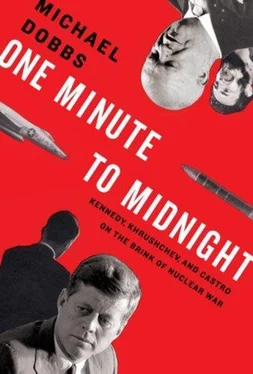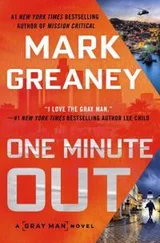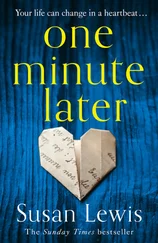“This is the statement not of a statesman, but of a pirate,” he fumed. “We are not sovereign by grace of the Yanquis, but in our own right…. They can only take away our sovereignty by wiping us off the face of the earth.”
Much of the force of Castro’s delivery came from his mesmerizing body language, which was made for television. The voice alone was somewhat reedy and high-pitched. But he spoke with such conviction that it was easy to be carried along on the torrent of words and gestures. The fierce look in his eyes and the thick black beard wagging back and forth were reminiscent of an Old Testament prophet. The Roman profile assumed a dozen different expressions in rapid succession: scorn, anger, humor, determination, but never the slightest trace of self-doubt. His long, bony hands sliced the air for emphasis, occasionally gripping the sides of his chair. When he made a point, he raised his right forefinger magisterially, as if challenging anyone to disagree with him.
Speaking in front of a Cuban flag, Castro barely mentioned the Russians during his ninety-minute diatribe. Nor did he mention the missiles, except in rejecting Kennedy’s various accusations against Cuba. Instead, he delivered an impassioned defense of Cuban national sovereignty, along with a warning that aggressors would inevitably be “exterminated.”
“Our country will never be inspected by anyone, because we will never give authorization for that to anyone, and we will never abdicate our sovereign prerogatives. Within our frontiers, we are the ones who rule, and we are the ones who do the inspecting.”
Castro’s solo performance struck some foreign diplomats in Havana as restrained by his normal standards. But it was still riveting. As he launched into his peroration, he clutched the sides of his chair, as if struggling to stay in his seat. “All of us, men and women, young and old, we are all united in this hour of danger. All of us, revolutionaries and patriots, will share the same fate. Victory will belong to us all.”
With a final “ Patria o muerte, venceremos,” he jumped out of his chair and rushed from the room. There was no further time to lose.
The streets of Havana had been deserted while Fidel spoke. When he finished, people poured into the rainswept streets, carrying candles and other improvised torches. The night sky was filled with thousands of specks of light as the crowds surged through the alleyways of old Havana singing the national anthem, celebrating an 1868 victory over the Spanish:
No temais una muerte gloriosa,
Que morir por la patria es vivir.
Do not fear a glorious death,
For to die for the Fatherland is to live.
Maurice Halperin, a former American diplomat who found refuge in Havana after being accused of spying for the Soviet Union, noticed that many of the men in the crowd had armed themselves with meat cleavers and machetes, which they carried proudly in their belts. “They were geared up for hand-to-hand combat without the slightest suspicion that they could be blown to bits by an invisible enemy.”
The way Castro saw it, his ascent to power in Cuba was like a morality play. He was the hero, pitting himself against a series of much more powerful enemies, first domestic, then external. Whether his opponent was Batista or Kennedy, Castro’s method was the same: uncompromising stubbornness. Since he was much weaker than his enemy, he could afford to display no weakness at all.
To get people to follow him, Castro had to project a sense of total conviction. He talked about the future with such certainty, another Third World leader once remarked, he might have been talking about the past. Everything depended on the will of the leader. It was a philosophy adopted from Jose Marti, the “apostle of Cuban independence,” who died fighting the Spaniards in 1895. After Castro came to power, he turned one of Marti’s sayings into a slogan for the revolutionary regime, and had it pasted on billboards the length and breath of Cuba: “ No hay cosas imposibles, sino hombres incapaces— There are no impossible deeds, just incapable men.”
Like his role model Marti, Castro was willing to die for the cause in which he believed, and expected his followers to do the same. Patria o muerte expressed his personal philosophy. A revolution, almost by definition, was a high-stakes gamble in which there were only two possible outcomes. As his comrade-in-arms Che Guevara put it, “in a revolution, you win or you die.” That did not mean taking unnecessary risks, but it did mean a willingness to gamble everything on a brilliant throw of the dice. If Fidel died, he would go down in Cuban history as a martyr, like Marti before him. If he lived, he would be a national hero.
It was this sense of going for broke that distinguished Castro from the other two main actors in the crisis. In their different ways, both Kennedy and Khrushchev recognized the realities of the nuclear age, and understood that a nuclear war would inflict unacceptable destruction on victors and vanquished alike. Castro, by contrast, had never been swayed by conventional political calculations. He was the antipolitician with an out-sized ego. For the British ambassador to Havana, Herbert Marchant, the Cuban leader was “the prima donna of prima donnas,” “a megalomaniac with paranoiac tendencies,” “an astonishing character,” and “a passionate, mixed-up genius.” Alone among the three leaders, Fidel had the messianic ambition of a man selected by history for a unique mission.
He was born on a sugar plantation in Oriente Province in 1926, the third child of a fairly prosperous Spanish immigrant. He was a rebel by the age of seven, throwing tantrums and insisting he be sent to boarding school. After being schooled by the Jesuits in Santiago de Cuba, he attended Havana University, the most prestigious academic institution in the country. He spent much of his time there organizing protests, including a forty-eight-hour general strike in 1947 following the killing of a high school student in an antigovernment demonstration.
The turning point in Fidel’s young life was the attempted capture, on July 26, 1953, of the Moncada military barracks in Santiago by himself and 123 armed followers. The attack was a fiasco, resulting in the arrest of most of the outgunned and outnumbered rebels. But Castro was able to turn the defeat into the founding myth of his July 26 political movement and make himself the main focus of opposition to Batista. He used his trial as a platform to attack the government and gather more followers, uttering his most celebrated line, “Condemn me, it does not matter. History will absolve me.” (“ La historia me absolvera.”) He received a pardon after serving less than two years of his fifteen-year sentence, and left for Mexico in July 1955.
“We shall be free or martyrs,” Castro told his eighty-one followers as they set sail from Mexico on board the yacht Granma in November 1956, bound for the Sierra Maestra, the ridge of high mountains along the southern coast of Oriente. As usual, he was absurdly optimistic about his chances of achieving the seemingly impossible, the overthrow of Batista. He looked ahead one step at a time. “If we leave, we shall arrive. If we arrive, we shall enter. If we enter, we shall win.”
“We have won the war,” he proclaimed exuberantly a few weeks later, after his army survived the first of many ambushes by the pro-Batista forces, leaving him with just seven followers and seven weapons.
Castro’s life showed that individuals could change the course of history, whatever Marxists might say about the preeminence of the class struggle. In his version of history, which had more to do with Cuban nationalism than Soviet-style communism, the martyr-hero was always center stage.
Читать дальше












